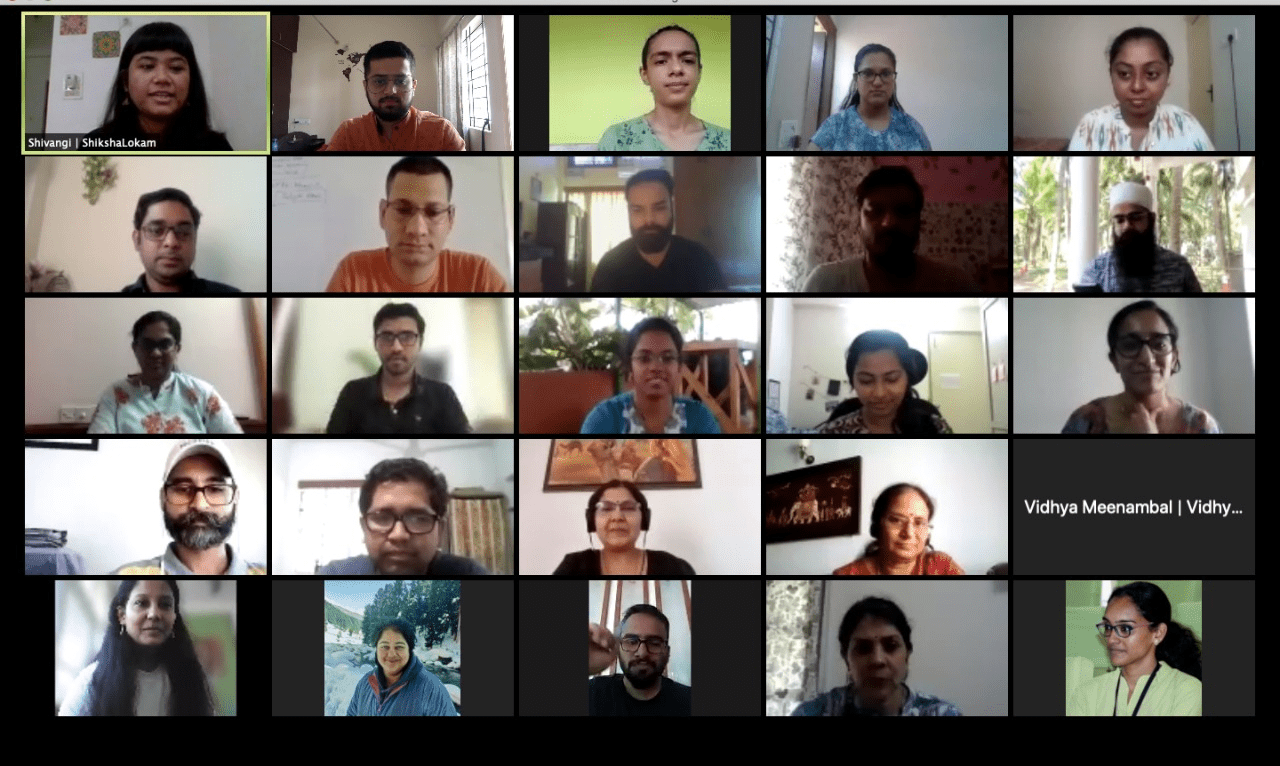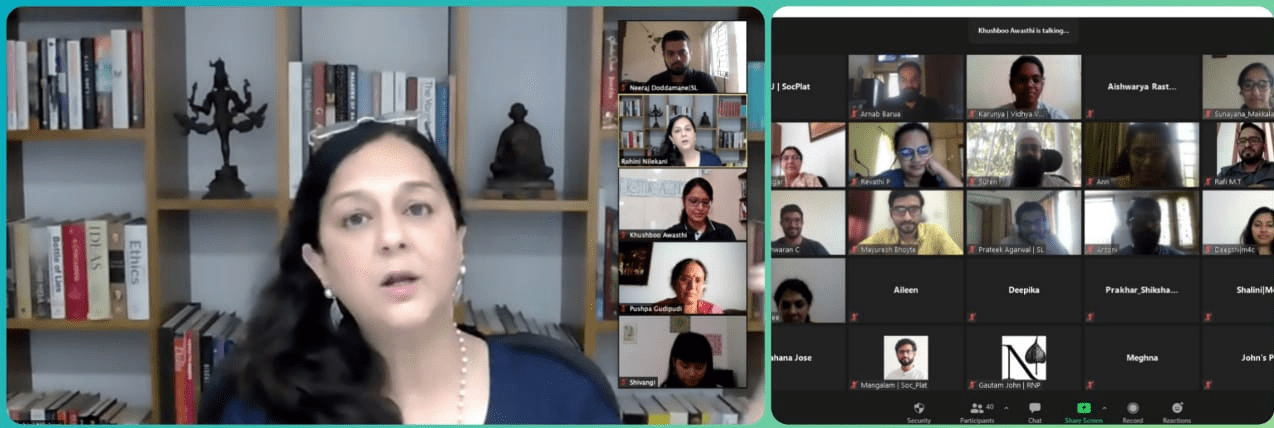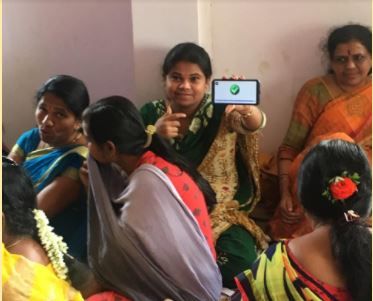Participants come together to build their understanding of societal platform core values
The role of samaj in the societal platform model is that of one of the key actors who influence the ability to address any societal issue with speed, at scale. ShikshaLokam, in its journey has constantly engaged with the actors, either to pick brains on what kind of engagement would the stakeholders find more personalized and agency-driven, or to brainstorm on what it means to design programs for education leadership at scale, to name a few. There have been collaborations that have led to the creation of a community of practitioners who have tried and tested different methods of enabling education leadership at scale. However, no matter which first-mile stakeholder we work with, we realized, that, as a community — many common challenges surround us, such as:
- how do we make technology easy for our leaders,
- how do we know if what we are designing is leading to any shift,
- how do we collaborate with sarkaar,
- why certain solutions are more effective than others!
To find answers to these questions and more, ShikshaLokam initiated a space to find common meaning about what it means to apply platform thinking for education leadership at scale, with this community.
We kickstarted the space with Introduction to the Societal Platform Core Values to all the participants. Different groups representing a mix of organizations discussed their understanding of the platform values and shared their experiences of having seen these values get manifested in their personal and professional journeys as a change maker. Here is a peek into the highlights of what was shared:
Restore Agency
Access to information, ability to choose, trust from others and the power to decide form the core of being able to exercise agency for self. Although one might also not be able to exercise their agency due to multiple reasons such as lack of information and trust, to ignite the practice, one can be taken on the journey of “guided agency”. This is where the role of a samaj actor comes into the picture as they can help the stakeholders on this journey of discovering and then exercising their agency in a guided manner. If a stakeholder says “no” to an idea or an intervention, this should also be taken as an indication of them practicing their agency by participating in the change process.
Catalyse Interactions
Fostering interactions among stakeholders is key. To catalyze interactions, what value is exchanged in an interaction should be focused. Acknowledging that one does not always have a solution and that evoking interactions can help is a mindset that one should adopt. Solving can’t be done in silos- they have to happen in a connected environment where individual strengths come together. Peer learning communities have shown catalyzed interactions where the voice of the learners gets heard which aids further opening of interactions. Civil society organizations play the role of catalysts who create opportunities for interactions. Either existing interactions to be made better or new interactions can be designed. Defining the scope of interactions right from the start might be helpful as that will make sure that the revised interactions are nudges to move to a new state and not a complete disruption of processes.
Building Public Goods
Building goods that are scarce and making it available through easy access is what building public goods stands for. If the goods that are being created are open to the public for reuse and reconstruction, it can be called a public good. In the context of education and education leadership, the resources created in the form of learning materials, training materials, program designs and others are examples of public goods. The mindset to create for use and reuse by others is the backbone of the value of building public goods.
Inspire Co-creation
Co-creation in the context of education means co-creating with the stakeholders themselves right from the start. The stakeholders can be representatives from different layers of the system, but including them in the space and further creating spaces where they can co-create among themselves is the essence of this value. Co-creation practices are most sustainable and also builds more ownership in the participants themselves to carry out the actions post the co-creation exercise. Examples where this value has been seen manifested in programs running in the state of Bihar where different civil society organizations came together to design the school leadership development program in the State while also including the members of the state in the design process. Additionally in the state of Madhya Pradesh, where the state worked on re-engineering the process of leave application in the system, they included the officials at the block level and district level to share their inputs on how this process can be made better.
Empower with Data
Access to data is part of empowering with data, but the ability to make sense of the data and imagine ways in which the data can be useful to drive is the core of empowering through data. A lot of times we and our stakeholders do have access to data, but whether it is easy to understand or not determines the usability of that data too. So empowering with data includes all aspects related to access to data, ability to make sense and how to include it in action as well. In the context of programs, stakeholders do have access to data as they are involved in a lot of data collection processes, but how can this data influence their ability to make decisions and take actions is the core of where we need to focus when it comes to empowering through data.

In the spirit of co-creation, ShikshaLokam and the Societal Platform team came together to design a space where we can together create tangible meaning of societal platform thinking with our partners. We aim to uncover deeper meanings as we go further in this space.
The reflections from each group ended with the question of “which value do you resonate the most with” and what it is that they think of when they think of applying platform thinking for education leadership. We would like to know from you too.. Which value do you resonate the most with… share with us!




